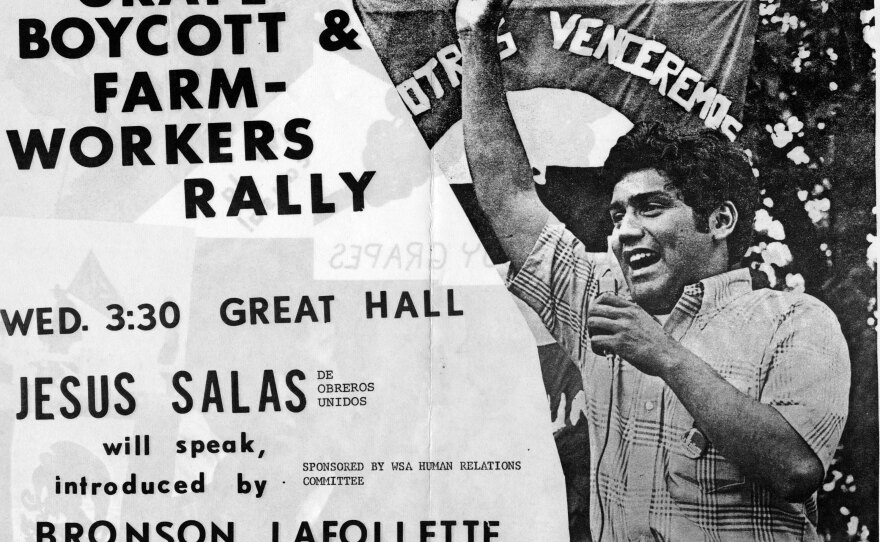Jesus Salas has been involved in nearly every aspect of the agriculture and migrant worker movement in Wisconsin - from founding Obreros Unidos to being CEO of United Migrant Opportunity Services.
As a child, Salas and his family traveled from Crystal City, Texas to the Great Lakes Region to cultivate and harvest crops. In 1959, the family settled in Wautoma, where the young Salas (a third-generation migrant worker) became actively involved in fighting for the rights of improving migrant workers.

Salas was a founder of Obreros Unidos - the United Workers union. The group organized a march from Wautoma to Madison in 1966 to protest migrant worker conditions as well as walkouts against the produce company Libby’s. The organization also joined forces with Cesar Chavez’s national boycott of grapes to expand its impact in Wisconsin.
Salas went on to become the first Latino CEO of United Migrant Opportunity Services in 1969, and fought for equal opportunity for Latino students at UW-Milwaukee. Still later, he taught bilingual skills for 20 years at Milwaukee Area Technical College.
"You could go anywhere in the United States and you won't see the network of social services that we have here in Milwaukee," Salas says.
Today, he volunteers for Voces de la Frontera and speaks about his work advocating for the rights of migrant workers.
Salas says today’s resurgence of the anti-immigrant, political rhetoric is a "basic lack of understanding in terms of the contributions of the migrant workers." He notes that in the ten years that he and his family worked in Wisconsin and the Great Lakes region, no one ever attempted to get workers from anywhere else because migrant workers had distinct skills and work ethic.
"Wisconsin small farmers, when they saw our contribution, they wanted our labor," Salas explains.
The migrant workers who came to Wisconsin in the ‘40s and ‘50s, Salas says, helped transform Wisconsin into an agricultural powerhouse.
“During the period of time that we’re migrant workers, we’re the leading producers of corn, of peas, of cabbage... The potato industry that now competes with Idaho that started out bagging potatoes behind tractor-pulled diggers are now a major central Wisconsin industry,” Salas says. “Migrant workers who have stayed here are now part of Wisconsin’s dairy industry. The dairy industry would collapse if migrant workers – many of them undocumented Mexican workers – would cease to work with them. So we’ve become an integral part of the economy of the state of Wisconsin.”

Salas sees much work still left to be done. "The agencies that we set up in the ‘60s are underfunded. We've seen a demand for services, but we haven't seen an increase in those funds to be able to adequately provide for them,” he explains.
He points to the dairy farm industry as an example: “We see problems on a daily basis. Its fine if (migrant workers) stay in the farm and milk two or three times a day, but they’re not welcome.” In addition to an unwelcoming environment, Salas says, nearby school systems do not outreach to the families to enroll their children, nor do they provide bilingual education services.
In Milwaukee, Salas notes that the current fight against statutes involving police enforcement of immigration is a concern and source of stress for many people.
READ: Immigration Advocates Urged Milwaukee Leaders to Reverse Course on New Immigration Procedures
“Codes are already affecting the agricultural industry as we speak,” he says. “And if you’re further going to change immigration policies, you’re going to impact very negatively agriculture throughout the United States.”

Salas says if migrant workers are supported by the wider communities they live and work in - especially regarding loan availability and home ownership - everyone will benefit.
“The wider community, the city of Milwaukee must understand what our needs are, what our contributions have been,” he says. "That we are contributing members of society and we want to be respected for our contributions.”









